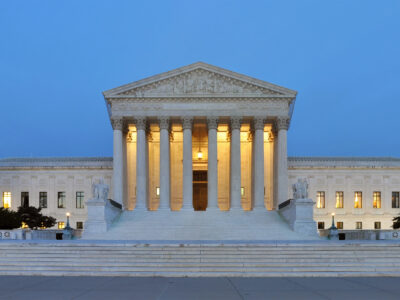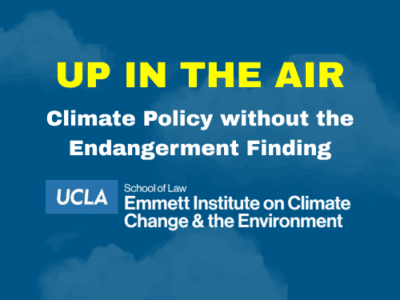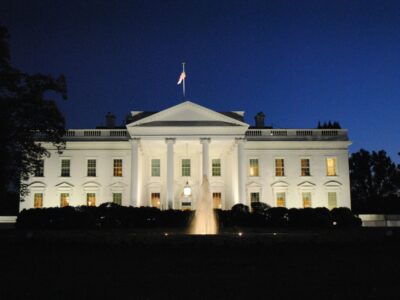Reviewing the REVIEW Act
This bill is in the running for the all-time “lame legislation” prize.
You can tell right away that this bill — passed by the House only yesterday — is a really clunker. The title is Require Evaluation Before Implementing Executive Wishlists Act of 2016. Really, that’s the best they could come up with? But it only gets worse.
The bill provides that no “high-impact rule” can go into effect until the judicial review process is completely over. That’s a truly dumb idea, because it totally ignores the benefits of the regulation. Suppose the regulation is required because of a national emergency? Or suppose thousands of people will die in the meantime? Does the House really mean that it can’t go into effect so long as there is even one minor issue unresolved in any case brought against the rule, even if the case is completely groundless? Note that there is no exception here for national security or anything else. (For example, the FAA might not have been able to ground planes in the aftermath of 9/11 if anyone anywhere in the U.S. challenged the action in court, and in any event they would have had to wait for economists to project the costs of the order.)
Also note that this “automatic stay” puts a lot of pressure on the courts to resolve challenges to regulations quickly. That might lead them to brush over minor flaws in the bill, or just to make hasty, ill-considered decisions. Is that really what the House wants?
Let’s just put aside these problems with the general concept, however. The bill is also poorly drafted. Recall that this automatic injunction against a rule applies to “high-impact rules.” What does that mean? The bill’s definition covers any rule that “may impose an annual cost on the economy of not less than $1,000,000,000.” Here are some questions any competent lawyer would ask:
- What does “may impose” mean? More likely than not? One chance in ten? One chance in a million?
- What does “annual cost” mean? Something that happens only once isn’t “annual.” So presumably the bill would only apply if a regulation required spending more than a billion dollars per year for some unspecified number of years. But if they had wanted to say “annualized cost” or ” cost in any single year” they could have done that, and they didn’t. (This point turns out to be more complicated — see the afterword for more discussion of “annual.”)
- What’s a “cost to the economy”? Does that mean the net cost (that is, after subtracting benefits?) Does it mean costs experienced by regulated parties, ignoring possible offsetting profits by other firms? Does it mean a projected decrease in GDP? And what is a harm to “the economy” as opposed to a “harm to society”?
- The determination of “annual cost to the economy” is supposed to be made by OIRA, rather than the agency, but the statute doesn’t tell us whether that determination is subject to judicial review or on what basis. An additional thought: OIRA uses an extremely non-transparent decision process, so presumably the reasons for its decisions would remain secret (as they are today).
There’s even a further twist. All of those interpretative decisions about the law are going to have to be made by OIRA. As a reminder, that’s an office in the White House, which means that it’s going to try hard to avoid applying the rule to anything the President wants. So the bill is really asking the President to prune his own “wishlist.” How well is that going to work? And even if those OIRA decisions are subject to judicial review, OIRA’s determination may well receive deference from the courts.
I suppose, since the bill is such a bad idea, I should be glad that it’s drafted so ineptly. But it bothers the professional in me .
In the words of the great regulatory guru and jurisprudence scholar Casey Stengel, “Can’t anyone here play this game?”
Afterword: Bill Funk points out that OIRA has used somewhat similar language (“annual effect on the economy”) to determine which regulations to review (at least until recent years when it has just been reviewing anything it feels like). That does make things more complicated. To the extent OIRA practice has been consistent about questions like the degree of probability required to trigger review and the meaning of annual, that might help. But that language is in a context that suggests a very broad interpretation , since the “economic effect” language since it is followed by alternatives like “adversely affect in a material way the economy, a sector of the economy, productivity, competition, jobs, the environment, public health or safety, or State, local, or tribal governments or communities.” Congress used different language so presumably they’re not just adopting existing administrative practice (to the extent that it is completely defined and known to Congress, both of which could be questions). And there’s the question of what “cost of a regulation to the economy might be” might be and how it’s different from an “effect on the economy.”
Also notice that the OIRA order has a number of exemptions — for example, for regulations that involve “a military or foreign affairs function of the United States.” The absence of such language further confirms that Congress meant to elevate delaying regulations over national security or foreign policy. Let’s hope it’s never necessary to take costly action in a national security emergency.
Reader Comments
2 Replies to “Reviewing the REVIEW Act”
Comments are closed.







Dan,
When will the academic leadership in environmental affairs finally accept responsibility for properly informing the public of the clear and present dangers of climate change? Our lifestyles are unsustainable.
If political change is a metaphor for climate change, then we may have a rough ride ahead. Shall woe be upon us? Where’s Hillary? Where’s old Anthony St. John?
There are many good and legitimate questions about environmental policy under a Trump Administration which we should be asking; especially about the effects of carbon dioxide “pollution” and defense of the Clean Power Plan in federal courts. Hurry November and make America great again.
Dan, at this tipping point, what describes us the best?:
“We have met the enemy and he is us” Pogo quotation from poster for Earth Day 1970
“350orbust” has gone Farewell, Auf Wiedersehen, Adieu as Christine Penner Polle documented recently
California legislators, and all of our institutional leaders, are leading us like “lemmings over a cliff”
The only remaining question appears to be, can UC lead us to overcome our “Can we adapt in time?” failure mode
http://alumni.berkeley.edu/california-magazine/september-october-2006-global-warning/can-we-adapt-time